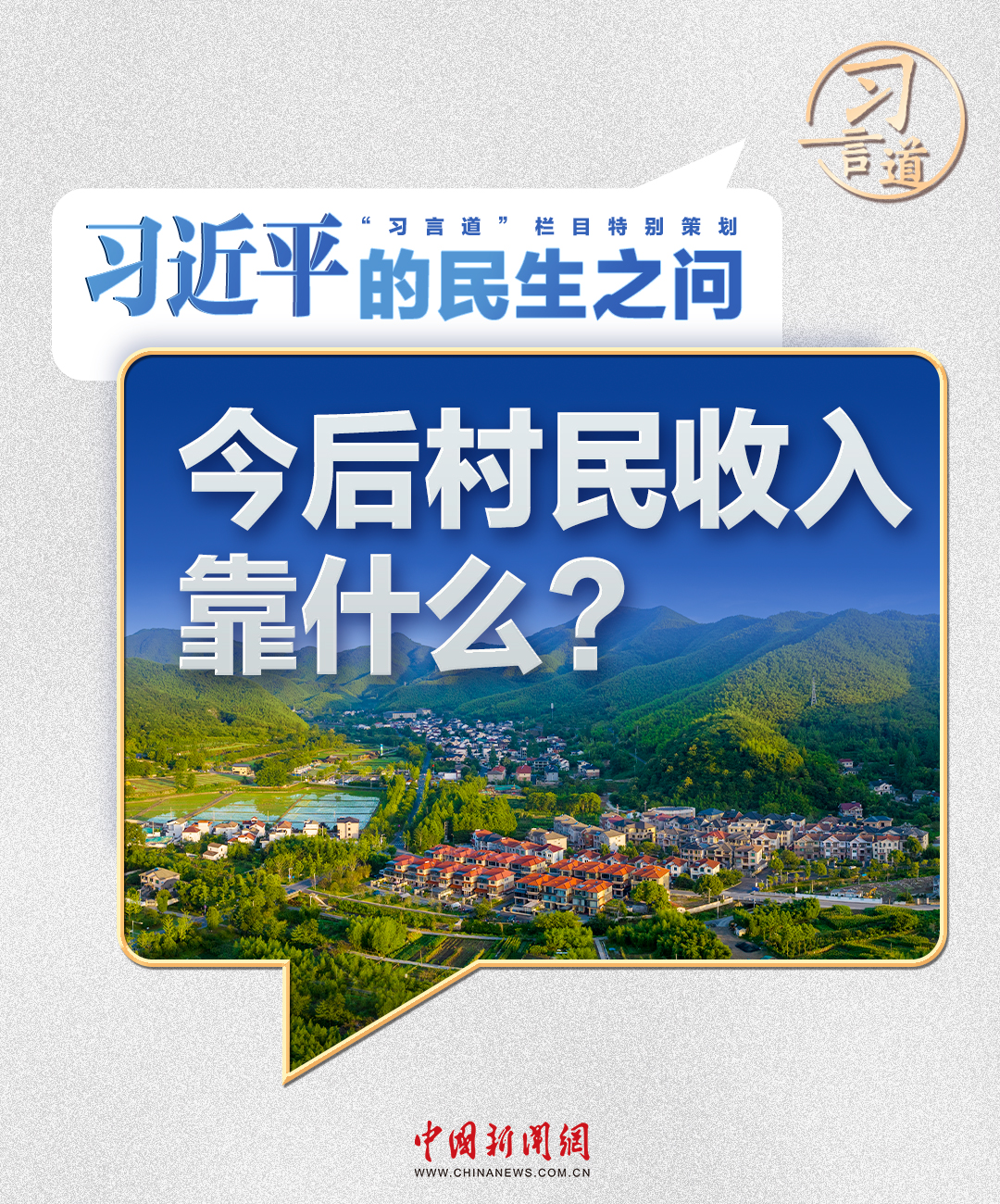Xi Jinping’s Question on People’s Livelihood | «What Will Villagers Rely on for Income in the Future?»
«What will villagers rely on for income in the future?»
Upon hearing the report from Bao Xinmin, then Party secretary of Yu Village, about the closure of local mines and cement plants, Xi Jinping asked with deep concern.
This scene took place 20 years ago. On August 15, 2005, Xi Jinping, then Secretary of the Zhejiang Provincial Party Committee, visited Yu Village, which was at a crossroads of transformation.
Yu Village, located in Tianhuangping Town, Anji County, Huzhou, Zhejiang, is surrounded by mountains on three sides and boasts a superior natural environment. In the 1980s, the village relied on its abundant limestone resources to develop a «stone economy,» briefly becoming the wealthiest village in Anji. However, while profits were made, the environment suffered—»villagers dared not open their windows, and even bamboo shoots stopped growing on the mountains.»
In January 2003, under Xi Jinping’s leadership, Zhejiang became a pilot province for national ecological development. As part of Huzhou’s mine remediation efforts, Yu Village’s mines and cement plants were gradually shut down. By 2004, the village’s collective income plummeted from 3 million yuan to just 200,000 yuan.
Twenty years ago, in the modest meeting room of Yu Village’s committee, Xi Jinping’s question about villagers’ income reflected their deepest concern.
«We are exploring solutions. Some households have started rural tourism businesses, and their income is quite good. It seems that in the future, we will rely on eco-tourism, rural hospitality, and making a living from our green mountains,» Bao Xinmin replied at the time.
After listening to Yu Village’s transition plan, Xi Jinping delivered a now-iconic statement: «The decision to shut down some mines is a wise move. Clear waters and lush mountains are invaluable assets. We used to say we want both clear waters and lush mountains as well as economic prosperity, but in fact, clear waters and lush mountains are themselves gold and silver.»
At a time when GDP growth was often prioritized above all else, balancing environmental protection and development was not only Yu Village’s dilemma but also a challenge for the entire nation. Xi Jinping’s insight—»clear waters and lush mountains are invaluable assets»—provided a groundbreaking perspective.
Shortly after his visit to Yu Village, Xi Jinping published an article titled «Clear Waters and Lush Mountains Are Also Gold and Silver,» in which he noted, «If we can transform ecological advantages into strengths in eco-agriculture, eco-industry, and eco-tourism, then clear waters and lush mountains truly become gold and silver.»
By analyzing specific cases and discerning patterns, the concept that «clear waters and lush mountains are invaluable assets» succinctly revealed the dialectical relationship between economic development and ecological conservation.
A shift in mindset opens new horizons.
Twenty years later, Yu Village has been recognized as a «Best Tourism Village» by the United Nations World Tourism Organization. In 2024, it welcomed 1.22 million tourists, generating 60 million yuan in tourism revenue.
Over these two decades, the idea that originated in Yu Village has flourished across China, igniting a nationwide movement toward green development and transforming countless rural areas.
On March 30, 2020, Xi Jinping returned to Yu Village for an inspection. In the courtyard of a rural guesthouse, he chatted with former village officials and returning entrepreneurs.
When he learned that local farmers were selling premium grapes for up to 268 yuan per bunch, Xi remarked with delight, «Protecting these landscapes gives you a unique advantage for future development. Ecology itself is an economy—protect it, and it will reward you.»
If people do not fail the mountains, the mountains will never fail the people.
Over the past 20 years, the development philosophy born in this small village has painted a beautiful picture of green landscapes across China, bringing tangible economic benefits to the nation in the new era.




